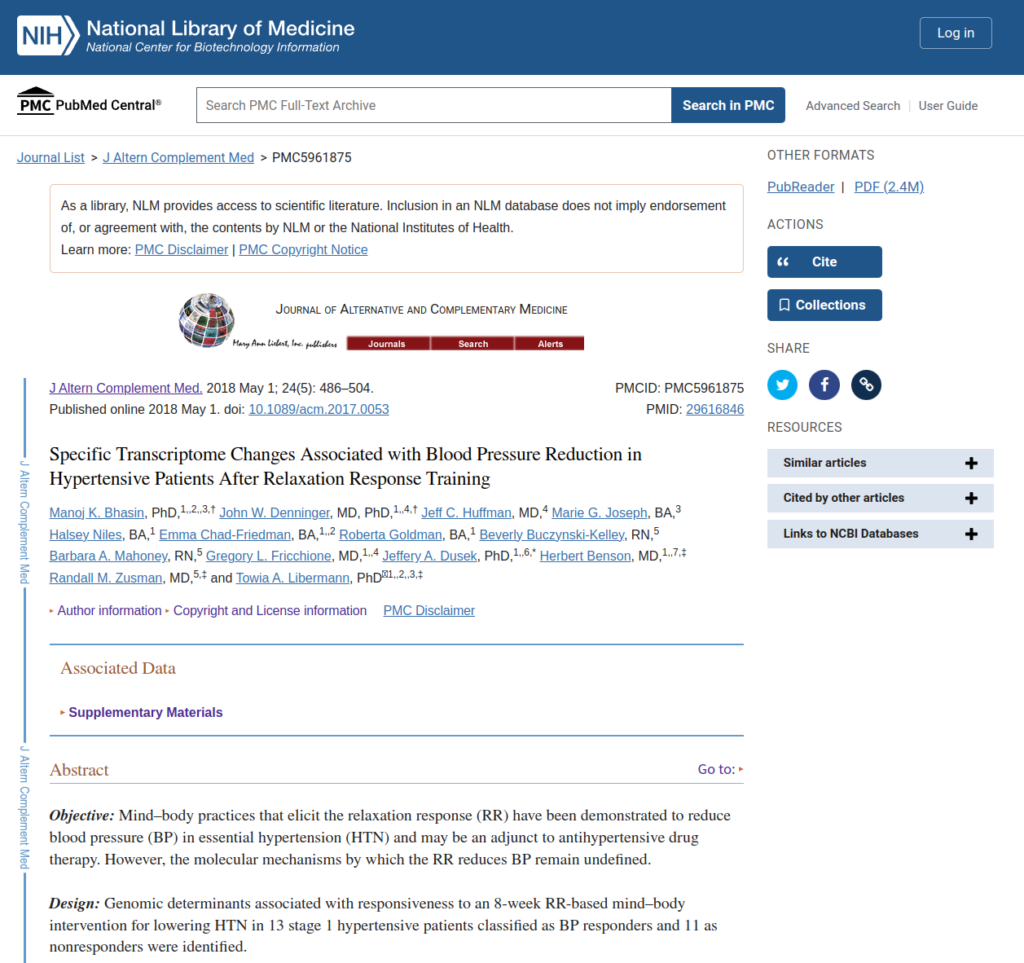Objective: Mind–body practices that elicit the relaxation response (RR) have been demonstrated to reduce blood pressure (BP) in essential hypertension (HTN) and may be an adjunct to antihypertensive drug therapy. However, the molecular mechanisms by which the RR reduces BP remain undefined.
Design: Genomic determinants associated with responsiveness to an 8-week RR-based mind–body intervention for lowering HTN in 13 stage 1 hypertensive patients classified as BP responders and 11 as nonresponders were identified.
Results: Transcriptome analysis in peripheral blood mononuclear cells identified 1771 genes regulated by the RR in responders. Biological process- and pathway-based analysis of transcriptome data demonstrated enrichment in the following gene categories: immune regulatory pathways and metabolism (among downregulated genes); glucose metabolism, cardiovascular system development, and circadian rhythm (among upregulated genes). Further in silico estimation of cell abundance from the microarray data showed enrichment of the anti-inflammatory M2 subtype of macrophages in BP responders. Nuclear factor-κB, vascular endothelial growth factor, and insulin were critical molecules emerging from interactive network analysis.
Conclusions: These findings provide the first insights into the molecular mechanisms that are associated with the beneficial effects of the RR on HTN.

